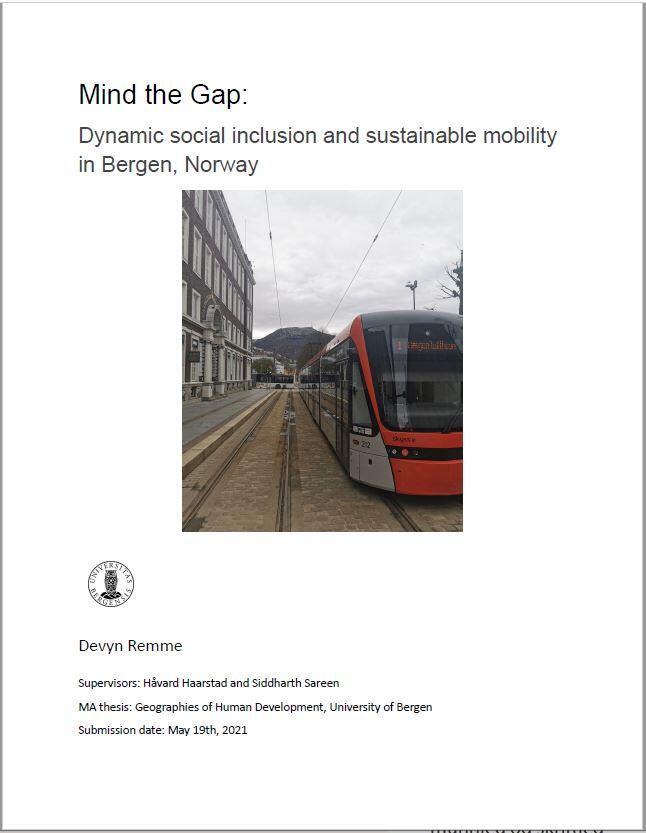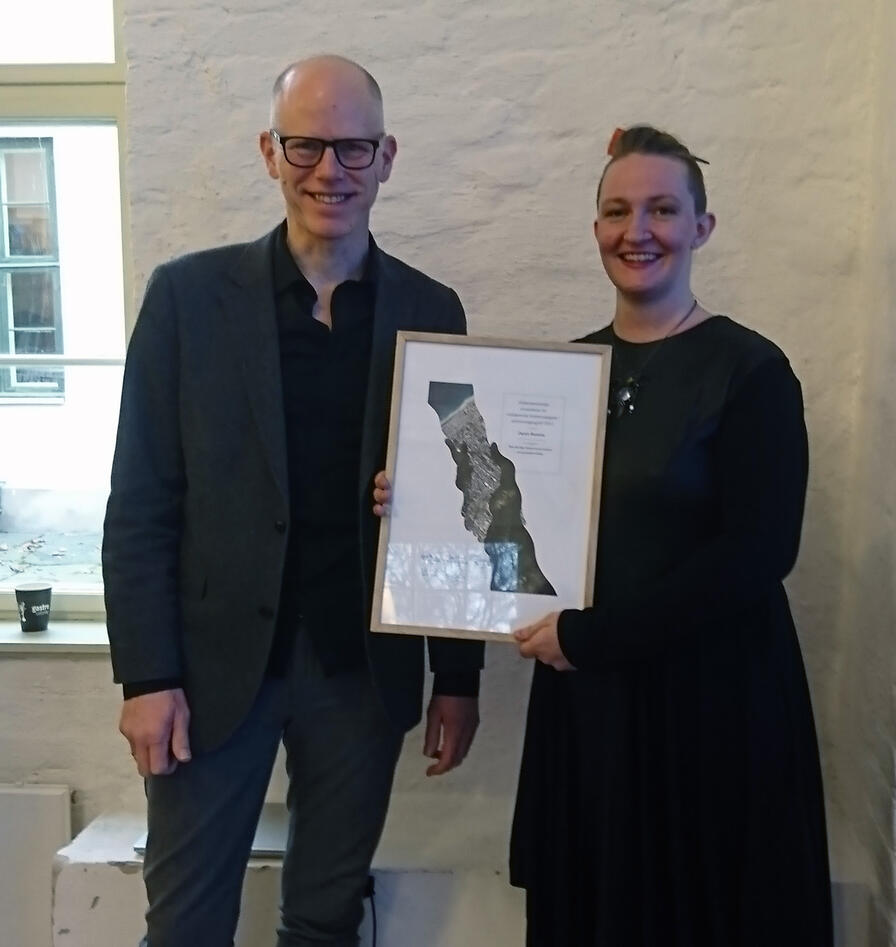Most innovative master thesis in Human Geography
Congratulations to Devyn Remme who was awarded the prize for the most innovative master thesis in Human Geography for 2022!

Main content
The winter seminar award for most innovative master thesis in Human Geography for 2022 went to Devyn Remme at the University of Bergen, for her thesis; "Mind the Gap: Dynamic Social Inclusion and Sustainable Mobility in Bergen".
Social inclusion and sustainable mobility in Bergen
- In the 2019 city council elections a new political party won third place on the issue of protesting road tolls. They claimed the policies were hurting those who have the least. I thought - if we can't figure out how to solve one specific sustainability issue, in this case reducing automobility in the city, in one of the wealthiest and most equal places in the world, what hope do we have for the sweeping transformations we need to do in order to deal with rapid climate change?
Devyn explains that her thesis engaged deeply with both empirics and theory. She collected multiple forms of qualitative data from a wide range of actors to see the different perspectives on the issue. She also drew on secondary quantitative data to see if it presented the same picture as the one she learned from talking to people.
- Then I tried to make sense of different claims about social inclusion and justice by first situating the data in terms of theories of liberal distributive justice but found that framework too limited. In order to think about equity in the midst of shifting systems of provision towards low carbon societies, I drew on subaltern theories of justice, especially commoning, and explored how this approach might translate into policy and practice, says Devyn.
Highly relevant
Håvard Haarstad was co-supervisor on Remme's master thesis and is now supervisor on her PhD on the global social and environmental impacts of mass EV adoption.
- We at CET are proud of Devyn and that her thesis won this prize. We are not surprised though – Devyn has written a thesis which is both academically advanced and socially relevant. We are also very pleased to have her at the centre as a PhD, Håvard says.
Remme's main supervisor was Siddharth Sareen, currently working as associate professor at University of Stavanger.
The committee's decision and justification:
"Although the chosen research theme is not unique these days, the candidate has explored theories and developed concepts, which are exceptional in sustainable urban mobility studies. The candidate has in a convincing way criticized traditional theories of distributive justice, arguing that although such theories are useful for identifying the cracks people might fall through and designing mechanisms to prevent people from falling too deep, they are insufficient to account for inclusion within the complex, dynamic, and emergent processes of large-scale social transformation required for decarbonization.
The master prize committee also wants to emphasize that Remme has designed a study, not only with an impressive data material based on a diversity of methods, but where the cases and a diversity of materials are analyzed in depth and recombined in innovative ways. Because of this, Remme is able to explore the complex socio-political context of urban sustainability strategies and uncover controversies and challenges hindering socially inclusive policies. By doing so, she has also hit this year’s conference theme “polarization” head-on.
The committee congratulates Devyn Remme with the prize, and with an impressive and innovative master’s thesis. The committee hopes she will find this award inspiring for her continuing and future work on urban sustainability."
I am supremely proud to win this prize and encouraged to continue my work both through research and teaching.
- Devyn Remme, PhD Candidate at Centre for Climate and Energy Transformation -


